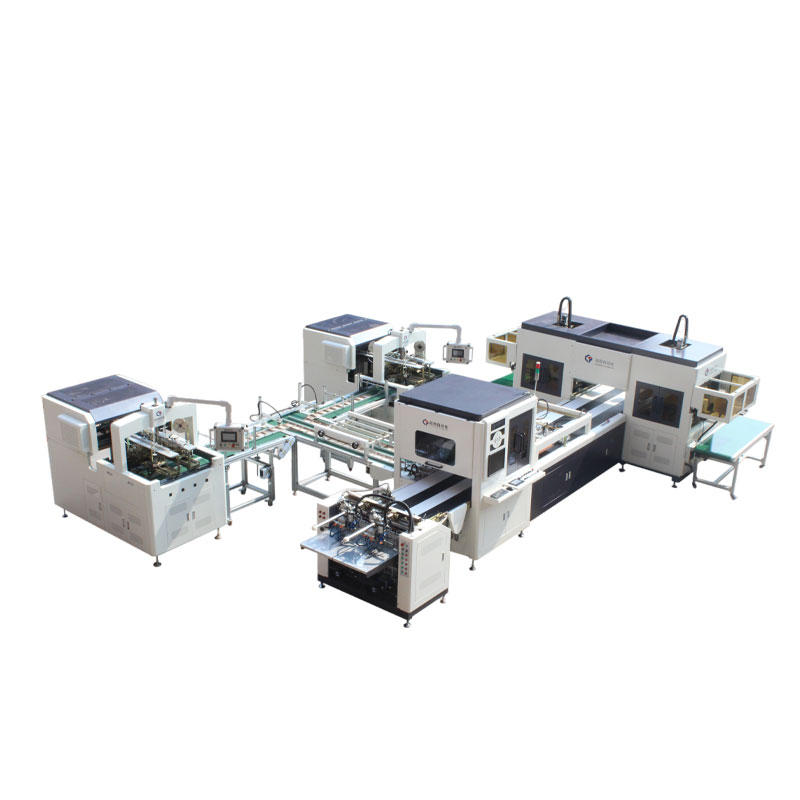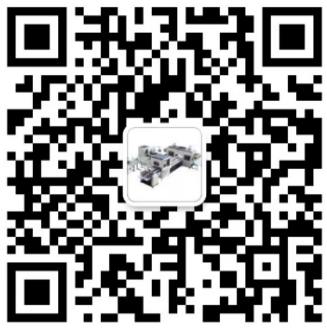Introduction
Brief Overview of Rigid Box-Making Machines
Rigid box-making machines are specialized equipment designed to produce high-quality, durable boxes. They are often used for premium packaging in various industries, such as cosmetics, electronics, and luxury goods. These machines are essential for creating boxes that offer superior protection and premium product presentation.
Importance of Choosing the Right Level of Automation
Choosing the right level of automation for your box-making process is crucial. The decision impacts your efficiency, productivity, and long-term costs. Fully automatic machines can significantly enhance production speed and consistency, while semi-automatic machines offer flexibility and lower initial costs, making them suitable for different business needs.

Fully Automatic Rigid Box Making Machines
High Production Speed and Output Capacity
Fully automatic rigid box-making machines are designed to handle large-scale production with exceptional speed. These machines can produce a high volume of boxes in a short period, ensuring that large orders are fulfilled promptly. This is particularly beneficial for businesses that need to meet high demand efficiently.
Fully Automated Process
One of the standout features of fully automatic machines is their ability to perform the entire box-making process without manual intervention. The machine automates blank feeding, folding, gluing, and stacking, ensuring that each box is produced to specifications. This automation reduces the risk of human error and maintains consistent quality across all products.
Minimal Manual Intervention Required
With fully automatic machines, the need for manual labor is significantly reduced. Operators only need to monitor the machine and handle occasional maintenance tasks. This reduction in manual intervention lowers labor costs and minimizes the potential for errors that can occur with manual processes.
Higher Initial Investment Cost
Investing in a fully automatic rigid box-making machine requires a higher initial capital outlay. These machines are more complex and have advanced technology that increases their cost. However, the long-term benefits, such as increased production capacity and reduced labor costs, often justify this investment.
Suitable for Large-Volume Production Runs
Fully automatic machines are ideal for companies that operate on a large scale. Businesses with high production demands and continuous workflow can benefit significantly from the efficiency and speed of these machines. They ensure that large orders are completed on time without compromising quality.
Lower Production Speed Compared to Fully Automatic
While semi-automatic machines are not as fast as their fully automatic counterparts, they still offer a considerable improvement over manual processes. These machines strike a balance between speed and control, making them suitable for businesses that do not require the highest possible production speed.
Manual Operations
Semi-automatic machines require manual intervention, such as hand-feeding blanks and transferring boxes between stages. This hands-on approach allows for greater control over specific tasks and can be beneficial when producing custom or varied box designs.
Automated Folding and Gluing Processes
Despite requiring some manual operations, semi-automatic machines automate the critical folding and gluing processes. This automation ensures that these crucial steps are performed consistently and accurately, reducing the likelihood of errors that can occur with fully manual production.
Lower Initial Cost
One of the main advantages of semi-automatic machines is their lower initial cost. They are more affordable than fully automatic machines, making them accessible to small and medium-sized enterprises. This affordability allows businesses to improve production processes without a significant financial burden.
Ideal for Small to Medium Production Volumes
Semi-automatic machines are perfect for businesses with small to medium production volumes. They offer the flexibility needed to handle smaller batch sizes and custom orders efficiently. Additionally, they can easily be adjusted to produce different box sizes and designs, enhancing their versatility.
Factors to Consider When Choosing
Production Volume Requirements
Assessing your current and projected production volumes is critical. Fully automatic machines suit high-demand situations, while semi-automatic machines are better for moderate production needs. Understanding your production requirements helps you select the suitable machine for your business growth.
Available Workforce and Labor Costs
Consider the availability and cost of skilled labor in your area. Fully automatic machines reduce labor needs but require skilled operators for maintenance. Semi-automatic machines, while needing more manual intervention, are easier to operate and maintain, potentially lowering overall labor costs.
Floor Space and Layout Constraints
Evaluate the space available in your production facility. Due to their integrated processes, fully automatic machines typically require more space. Ensure your facility can accommodate the machine without disrupting workflow. Semi-automatic machines are generally more compact and adaptable to different layouts.
Budget and Investment Capacity
Your budget plays a significant role in the decision-making process. Fully automatic machines require a higher initial investment but offer long-term savings through increased efficiency and reduced labor costs. Semi-automatic machines are more affordable upfront, making them a viable option for businesses with limited investment capacity.
Flexibility for Changeovers and Different Box Sizes
Semi-automatic machines offer greater flexibility if your production involves frequent changeovers or different box sizes. They can be adjusted quickly for various designs, making them ideal for custom orders. Fully automatic machines, while efficient, may require more time and effort to reconfigure for different products.
Conclusion
Choosing between fully automatic and semi-automatic rigid box-making machines depends on your production needs, budget, and available resources. Fully automatic machines offer high speed, efficiency, and minimal manual intervention, making them ideal for large-scale operations. Semi-automatic machines provide flexibility, lower initial costs, and are suitable for small to medium production volumes.
Fully automatic machines are the best choice for businesses with high production demands and the budget to invest in advanced machinery. They ensure consistent quality and efficiency. However, semi-automatic machines offer a cost-effective and flexible solution for smaller businesses or those with diverse production requirements.
If you need further assistance deciding which box-making machine suits your business, we encourage you to contact us for more information and personalized recommendations. Our experts are here to help you choose the best machine to meet your specific production needs.
 English
English





